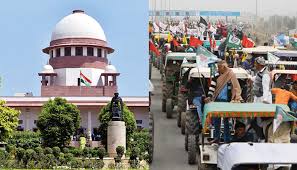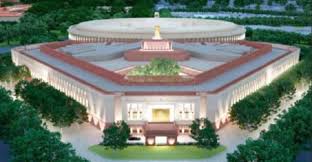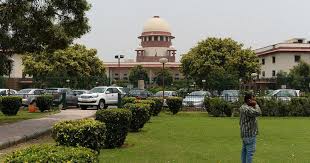Feature
Privacy not fundamental right, Centre tells SC

New Delhi: The Centre on Wednesday reiterated its stand that privacy was not a fundamental right, while contesting a bunch of petitions challenging the constitutional validity of the Aadhaar scheme on the ground of violation of citizens’ right to privacy.
Addressing the court for referring the matter to a constitution bench in the context whether privacy was part of the right to liberty and thus a fundamental right, Attorney General Mukul Rohatgi told the apex court bench of Justices J. Chelameswar, S.A. Bobde and C. Nagappan that one could not telescope privacy in any of the fundamental rights.
Rohatgi said the apex court had held against the midnight knocks by police on the pretext of search and seizures by reading privacy in Article 21 of the constitution that guaranteed protection of life and personal liberty but not in the case of picketing by police outside the residence of a suspect or a history-sheeter or putting people’s movement under surveillance.
Telling the court that the right to privacy does not reside in Article 21, Rohatgi said the apex court had long ago, first by an eight-judge bench and subsequently six- judge bench, held that “privacy was not a fundamental right”.
It was later from the mid-seventies that smaller benches of the apex court, in a spate of judgments, held that the right to privacy was a fundamental right by reading it in Article 21.
However, the attorney general said this would not eclipse the view held by eight- and six-judge benches that privacy was not a fundamental right.
The apex court bench is hearing rival arguments on the AG’s submission that if it (court) had to hear the batch of petitions challenging the Aadhaar scheme on the grounds of its being violative of the privacy of the people opting for it, then the matter should be referred to a five-judge bench.
He had urged the court to refer the matter to the five-judge bench so that there was an authoritative pronouncement on the status of privacy as a right, in the light of earlier pronouncements of the apex court.
Assailing the arguments put forth by the petitioners challenging the validity of Aadhaar scheme by relying on various references in the earlier judgments, the AG said that one could not interpret the references to one’s own convenience.
He said that a judgment could only be seen in the context of the questions raised and answered by it.
However, the petitioners have said that Aadhaar scheme was going to be implemented on the strength of an executive order and the same need not be referred to a five-judge bench and could be decided by the three judges hearing the matter.
Justice K.S. Puttaswamy (retd), who had moved the court in 2012, has contended that the entire Aadhaar scheme was “unconstitutional” as the biometric data collected under it was an incursion and transgression of individual privacy. Later, several others moved the court contesting the Aadhaar scheme.
Entertainment
Meghalaya Reserves Legalized Gambling and Sports Betting for Tourists

The State Scores Extra High on Gaming-Friendly Industry Index
Meghalaya scored 92.85 out of 100 possible points in a Gaming Industry Index and proved to be India’s most gaming-friendly state following its recent profound legislation changes over the field allowing land-based and online gaming, including games of chance, under a licensing regime.
The index by the UK India Business Council (UKIBC) uses a scale of 0 to 100 to measure the level of legalisation on gambling and betting achieved by a state based on the scores over a set of seven different games – lottery, horse racing, betting on sports, poker, rummy, casino and fantasy sports
Starting from February last year, Meghalaya became the third state in India’s northeast to legalise gambling and betting after Sikkim and Nagaland. After consultations with the UKIBC, the state proceeded with the adoption of the Meghalaya Regulation of Gaming Act, 2021 and the nullification of the Meghalaya Prevention of Gambling Act, 1970. Subsequently in December, the Meghalaya Regulation of Gaming Rules, 2021 were notified and came into force.
All for the Tourists
The move to legalise and license various forms of offline and online betting and gambling in Meghalaya is aimed at boosting tourism and creating jobs, and altogether raising taxation revenues for the northeastern state. At the same time, the opportunities to bet and gamble legally will be reserved only for tourists and visitors.
“We came out with a Gaming Act and subsequently framed the Regulation of Gaming Rules, 2021. The government will accordingly issue licenses to operate games of skill and chance, both online and offline,” said James P. K. Sangma, Meghalaya State Law and Taxation Minister speaking in the capital city of Shillong. “But the legalized gambling and gaming will only be for tourists and not residents of Meghalaya,” he continued.
To be allowed to play, tourists and people visiting the state for work or business purposes will have to prove their non-resident status by presenting appropriate documents, in a process similar to a bank KYC (Know Your Customer) procedure.
Meghalaya Reaches Out to a Vast Market
With 140 millions of people in India estimated to bet regularly on sports, and a total of 370 million desi bettors around prominent sporting events, as per data from one of the latest reports by Esse N Videri, Meghalaya is set to reach out and take a piece of a vast market.
Estimates on the financial value of India’s sports betting market, combined across all types of offline channels and online sports and cricket predictions and betting platforms, speak about amounts between $130 and $150 billion (roughly between ₹9.7 and ₹11.5 lakh crore).
Andhra Pradesh, Telangana and Delhi are shown to deliver the highest number of bettors and Meghalaya can count on substantial tourists flow from their betting circles. The sports betting communities of Karnataka, Maharashtra, Uttar Pradesh and Haryana are also not to be underestimated.
Among the sports, cricket is most popular, registering 68 percent of the total bet count analyzed by Esse N Videri. Football takes second position with 11 percent of the bets, followed by betting on FIFA at 7 percent and on eCricket at 5 percent. The last position in the Top 5 of popular sports for betting in India is taken by tennis with 3 percent of the bet count.
Local Citizens will Still have Their Teer Betting
Meghalaya residents will still be permitted to participate in teer betting over arrow-shooting results. Teer is a traditional method of gambling, somewhat similar to a lottery draw, and held under the rules of the Meghalaya Regulation of the Game of Arrow Shooting and the Sale of Teer Tickets Act, 2018.
Teer includes bettors wagering on the number of arrows that reach the target which is placed about 50 meters away from a team of 20 archers positioned in a semicircle.
The archers shoot volleys of arrows at the target for ten minutes, and players place their bets choosing a number between 0 and 99 trying to guess the last two digits of the number of arrows that successfully pierce the target.
If, for example, the number of hits is 256, anyone who has bet on 56 wins an amount eight times bigger than their wager.





















